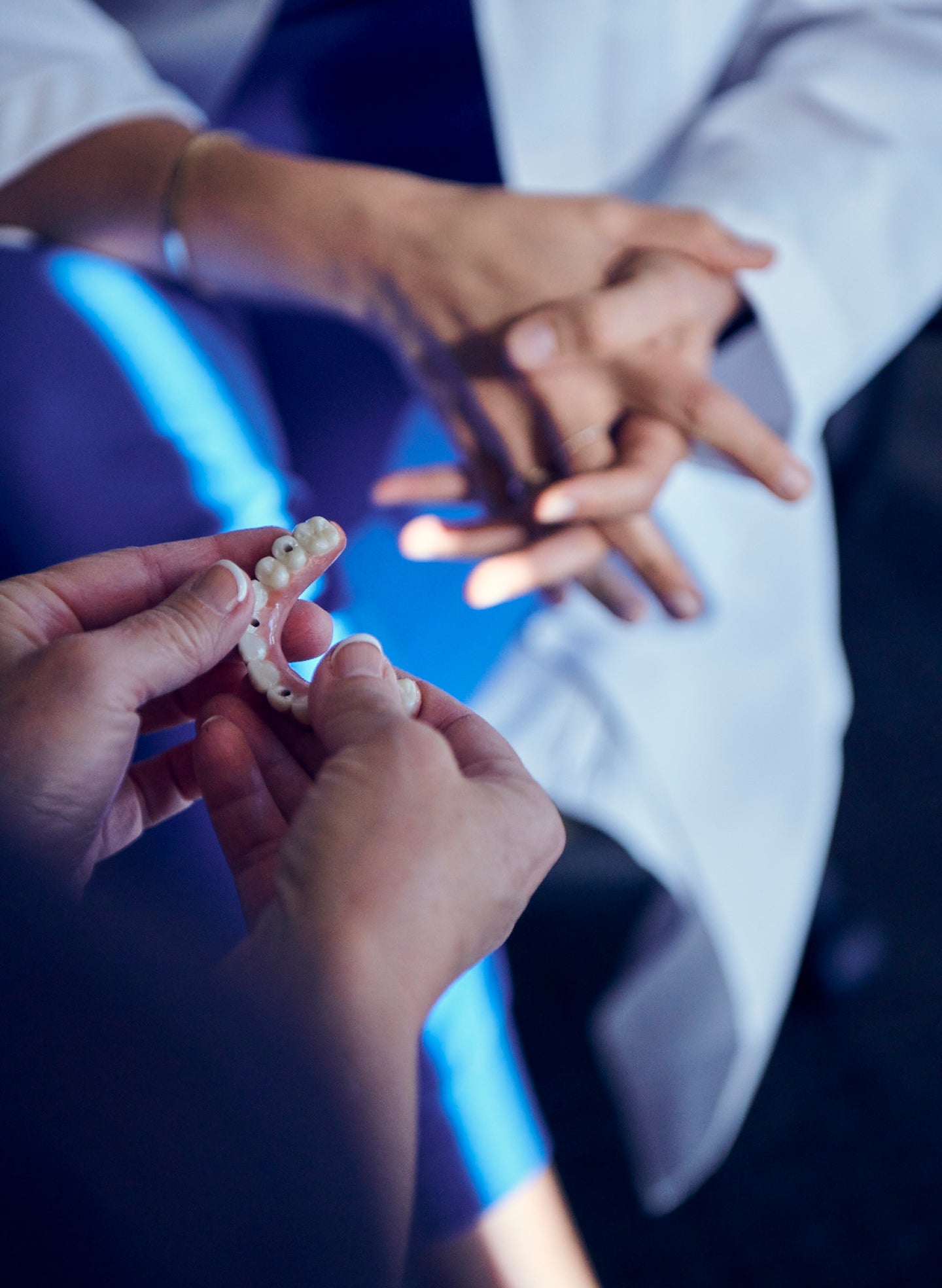Last updated 09.08.2025
Am I too old for dental implants? What age means for restoring your smile
See how age impacts implant candidacy, safety, and healing. Explore treatment options in your 60s, 70s, and beyond.

Learn more about Dr. George Wu

If you’re wondering whether you’ve aged out of dental implants, you’re not alone. Many patients in their 60s, 70s, or even 80s ask the same thing—and the answer is more hopeful than you might think.
At ClearChoice Dental Implant Centers, we help patients with missing or failing teeth get back to living life fully. And while every case is different, age itself is almost never the reason someone isn’t eligible.
Let’s walk through what actually matters.
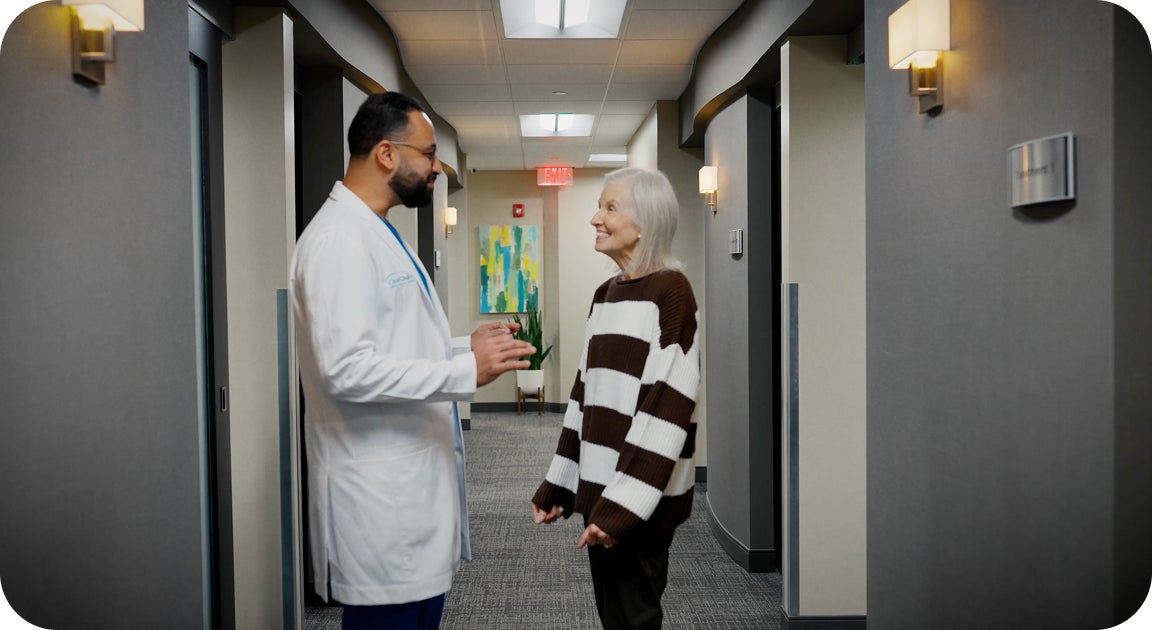
Is there an age limit for dental implants?
No, there’s no set age limit for dental implants. Eligibility depends on your overall health, bone quality and anatomy, and ability to heal—not your birth year.
“Each ClearChoice doctor has helped thousands of patients—we’ve seen it all, and we know how to help in all kinds of situations.”
-Dr.Carolina Cespedes
What’s the oldest age you can get dental implants?
There is no upper age cutoff. Many patients in their 70s and 80s choose dental implants successfully. The focus is on clinical factors, not your age.
When might implants not be recommended?
If you have unmanaged chronic health conditions, weakened bone that can’t support an implant, or factors that limit healing, your care team may explore alternative solutions. But even in complex situations, there may be a path forward.
For a broader overview of patient eligibility, visit the dental implants FAQ.
What health factors matter more than age?
Your medical history, lifestyle, and medications all matter—because they influence how your body heals after surgery.
Conditions that may affect eligibility
Before recommending treatment, your care team will look at a few key factors — not just your age.
A few things that can impact eligibility include:
Uncontrolled diabetes
Recent or unstable cardiovascular conditions (e.g., a recent heart attack, uncontrolled arrhythmias, severe heart failure) — typically require medical clearance and timing adjustments.
Smoking or vaping — can impair healing; pausing before and after surgery supports better outcomes.
Medications that affect bone healing — may require special planning.
Your ClearChoice doctor will evaluate these factors and, when appropriate, coordinate with your physician to build a safe, personalized plan during your dental implant consultation.
Are dental implants safe for seniors?
Yes. Dental implants are widely recognized as a safe, long-term solution for many older adults. Studies show dental implants can have a success rate of over 95% in the general adult population with proper care.¹ While success rates in patients in their 70s and 80s may vary based on individual health, age alone is rarely a reason to rule out treatment when medical conditions are well managed. Read how real patients found success.
¹Pubmed Central - A Systematic Review of Survival Rates of Osseointegrated Implants in Fully and Partially Edentulous Patients Following Immediate Loading
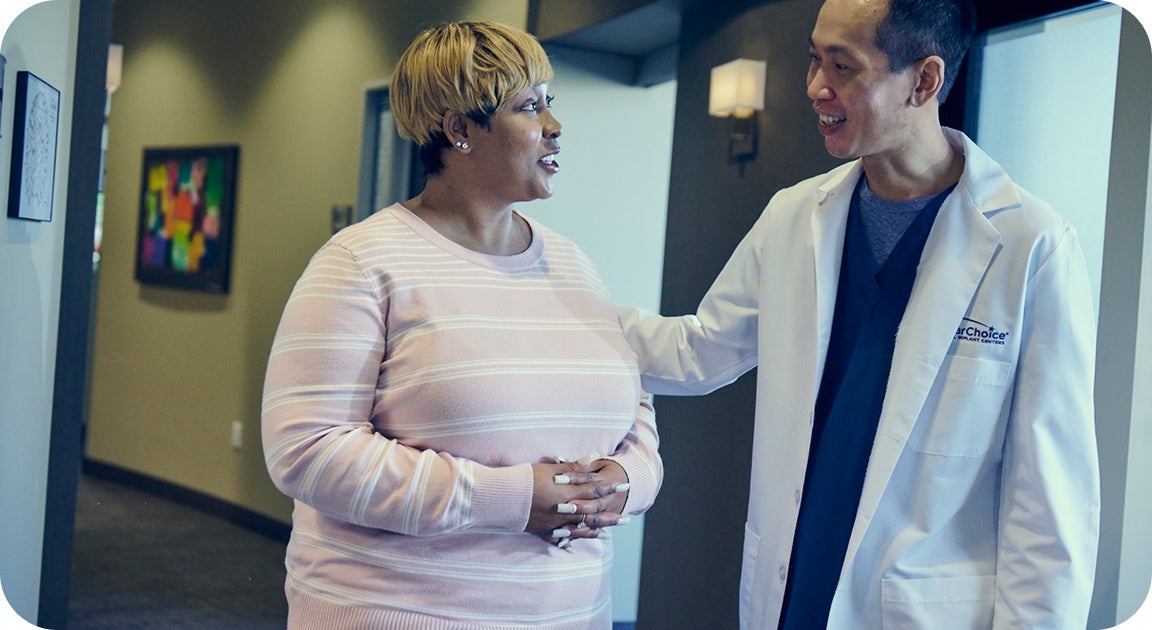
What to expect during the dental implant process
While no two cases are the same, the dental implant process is designed with comfort, safety, and long-term success in mind. Here’s a general overview:
Consultation and 3D imaging – You will have a 3D scan taken for your ClearChoice care team to evaluate your health and bone quality to develop a personalized plan.
Surgical procedure - The approach differs for single-tooth and full-arch treatment. For many full-arch cases, implants can be placed during a single outpatient visit and any non-restorable or failing teeth removed in the same appointment. When clinically appropriate, provisional (temporary) teeth are placed the same day so you leave with a complete smile while you heal.
Recovery and final restoration - Over the next several months, your implants fuse with your jawbone (a process called osseointegration). Healing typically takes 2–6 months, depending on your overall health and bone quality. Once healing is complete, your final restoration is delivered — designed for long-term comfort and function.
How long do dental implants last in older adults?
With proper care and maintenance, dental implants can last decades—sometimes a lifetime. They’re designed to provide a long-term, stable solution, even for patients who have experienced years of dental challenges.
Can I still get implants if I've lost bone over time?
Possibly. If you’ve experienced bone loss, your ClearChoice care team may recommend options like bone grafting or other pre-treatment steps to support eligibility for implants.
Are there any risks to be aware of?
Like any surgical procedure, dental implant treatment carries some risks — though they are typically low with proper care and planning.
Potential risks may include but are not limited to:
Delayed healing
Nerve irritation or discomfort
Allergic reaction (rare)
Your ClearChoice team will walk you through these considerations and provide detailed aftercare instructions to support healing and long-term success.

Are dentures or implants better for seniors?
It depends on your goals, oral health, and what your doctor recommends. To make the comparison clear, here’s how the main options differ:
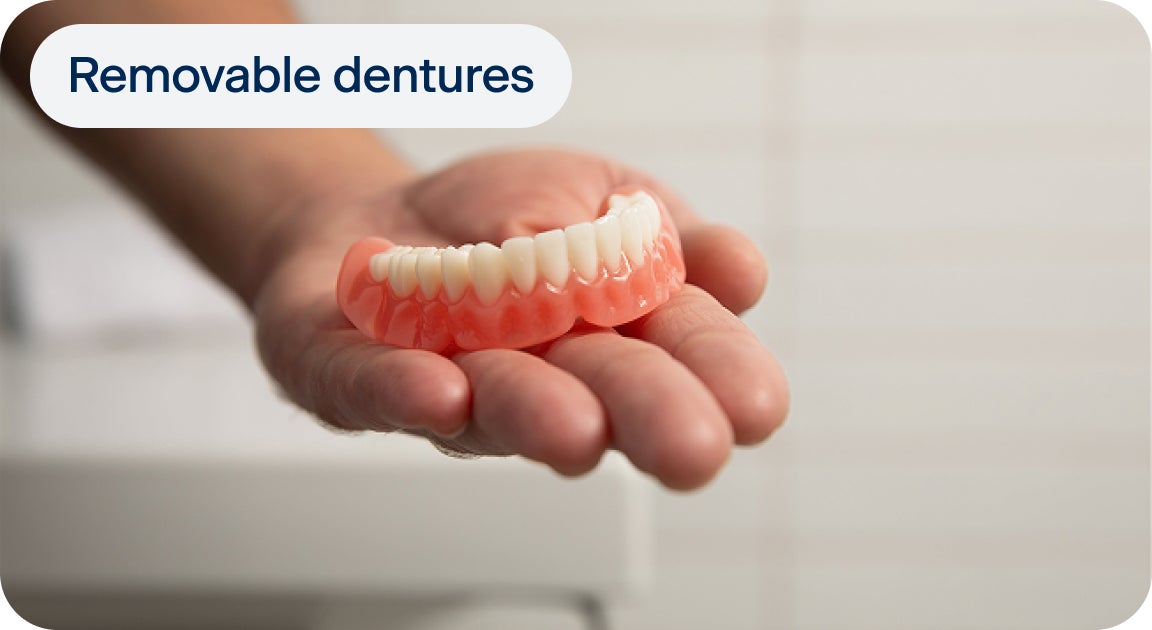
Removable dentures
May loosen over time as jawbone changes, which can lead to movement or sore spots because they rest on the gums.
Typically has the lowest upfront cost; removed for cleaning and may require adhesives.
Chewing efficiency is usually lower than with implant-supported options.
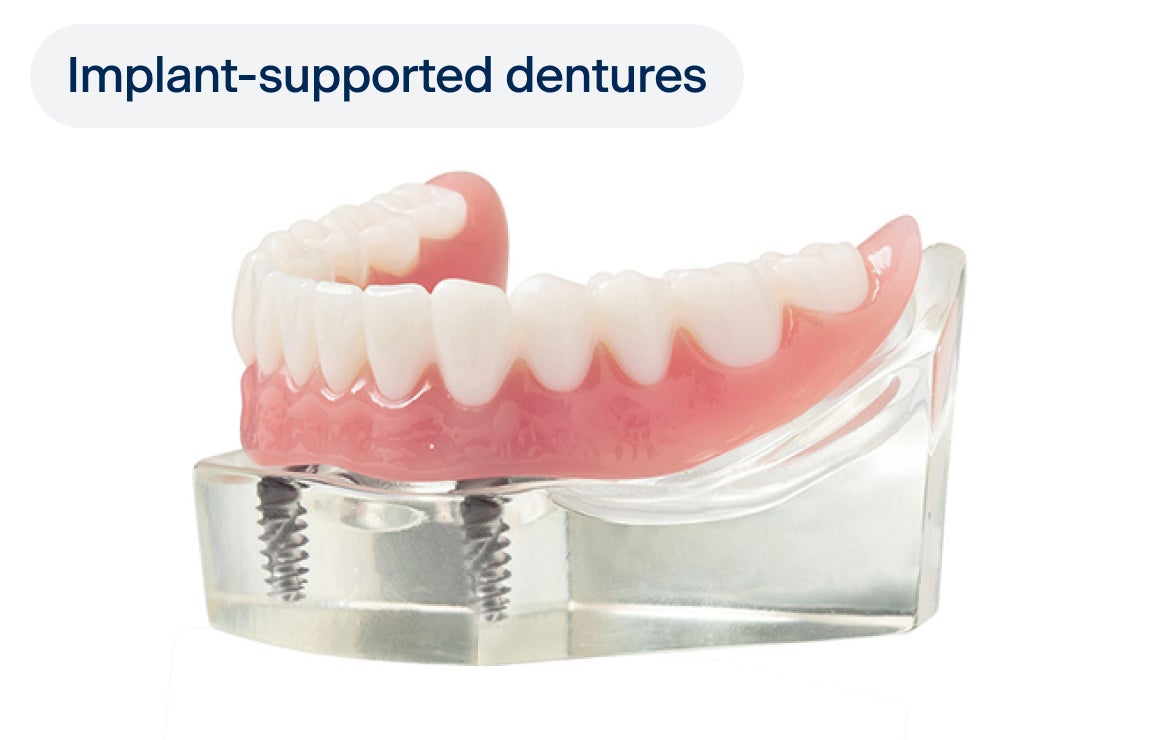
Implant-supported dentures (removable overdentures)
A denture that attaches to typically 2 implants for added stability compared with removable dentures.
Still removable for cleaning; some movement can remain, and attachments require periodic maintenance.
Can be a middle-ground option when fixed full-arch treatment isn’t appropriate.
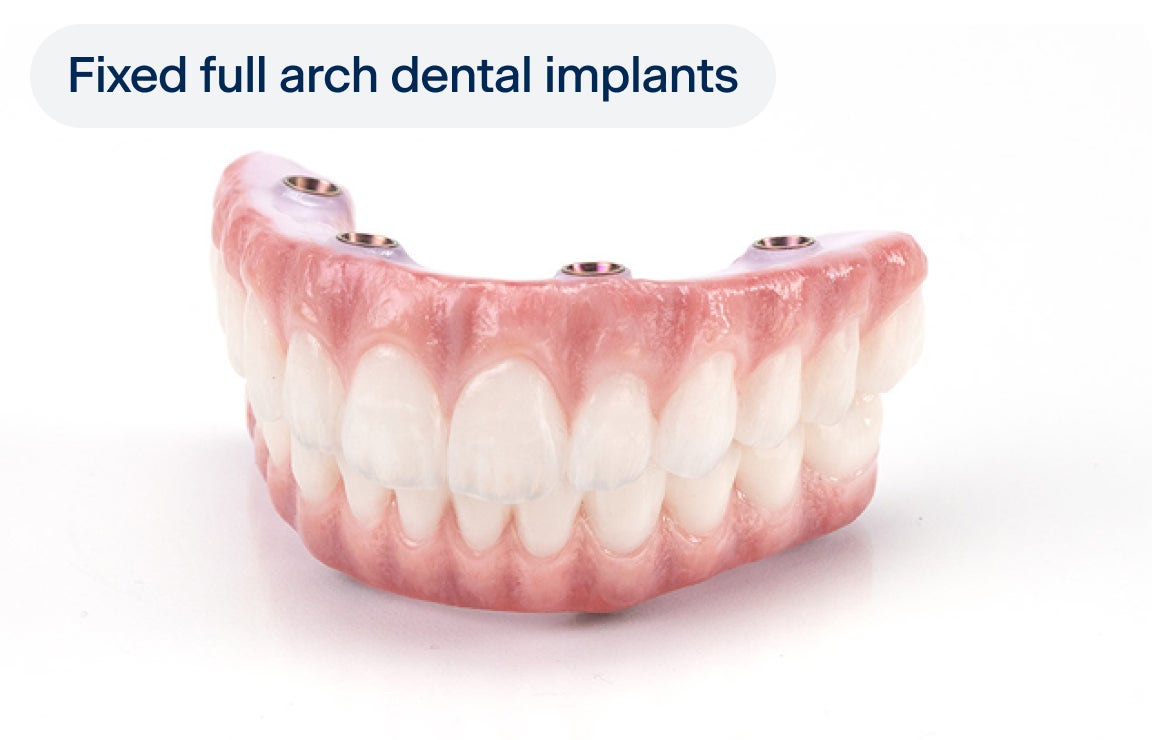
Fixed full-arch dental implants (non-removable)
A prosthesis secured to multiple implants; does not rest on the gums, which can reduce sore spots.
Designed to help prevent further bone loss by stimulating the jawbone.
Often provides stronger bite function and more natural-feeling eating and speaking
Higher upfront investment; your doctor will determine the number of implants and the best approach for your health and anatomy.
When comparing fixed full-arch implants to removable dentures, the advantages in stability, chewing function, and day-to-day comfort are typically more pronounced than with implant-supported dentures. Your ClearChoice doctor will recommend the approach that best fits your health, goals, and long-term plan.
What if I’m not eligible for dental implants right now?
Not everyone is eligible for implants immediately. But that doesn’t mean the door is closed. Some patients become eligible after additional prep or choose an alternative implant solution that fits their needs and budget.
“We use advanced diagnostics—CBCT imaging, HbA1c testing, and physician consultations—to ensure patients are in optimal health before implant placement.”
- Dr.Otabor Okundaye
How much do dental implants cost for seniors?
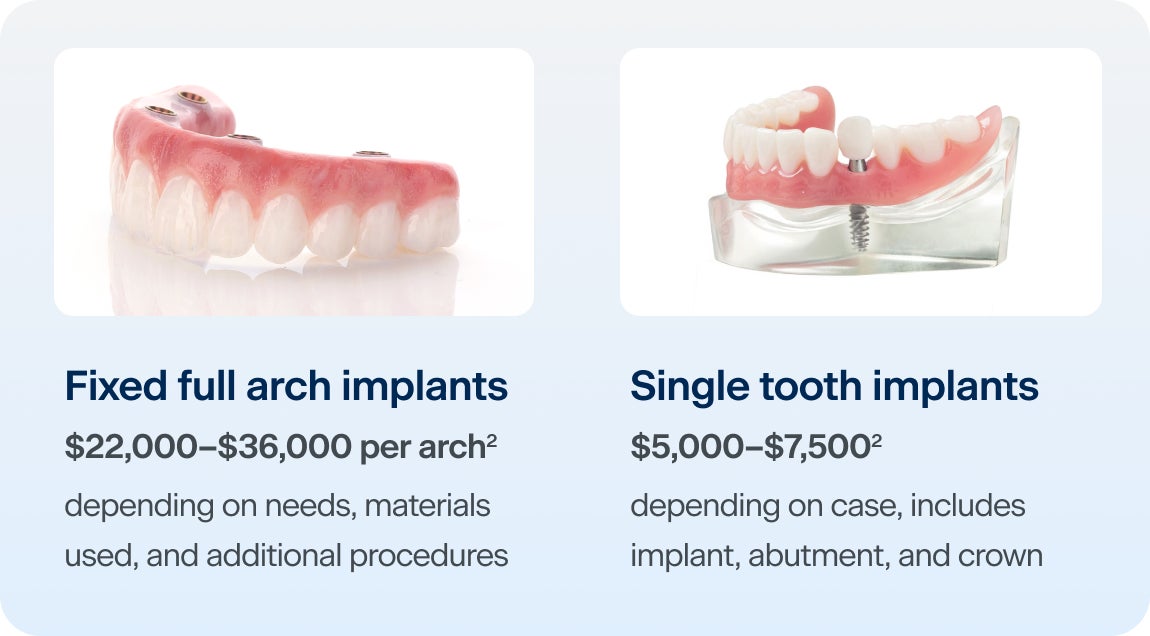
²Average price paid nationwide including all available discounts for selected treatment. Doctor evaluation required.
Dental implant costs vary depending on your specific needs, the number of implants required, and any preparatory procedures like extractions or bone grafts.
At ClearChoice Dental Implant Centers, full-mouth dental implant treatment ranges from $22,000–$36,000 per arch nationwide.²
While ClearChoice does not accept insurance, we offer:
Third-party financing options to help make payments more manageable
An Insurance Assurance discount of up to $5,000 ($2,500 per arch) for full arch treatment when you show proof of insurance, even if it doesn’t cover implants³
Your consultation includes imaging and a personalized treatment plan — so you know what to expect before moving forward.
³Valid at participating centers only. Discount off fixed full arch dental implants, $2,500 per arch. Maximum discount $5,000. Not valid for previous or ongoing work. Cannot be combined with other discounts. Discount taken off usual and customary fees. Contact your local center and show proof of insurance to claim your discount. ClearChoice is not affiliated with any insurance provider, and does not process insurance directly with insurance providers. If you choose to file a claim for reimbursement, you are solely responsible for all communication with your insurance company. Offer ends 12/31/2025.
Ready to learn what’s possible for you?
At ClearChoice Dental Implant Centers, your care happens all in one location — with one team, one cost, and one clear plan. Whether you're 55 or 85, we’re here to help you move forward with confidence and clarity.
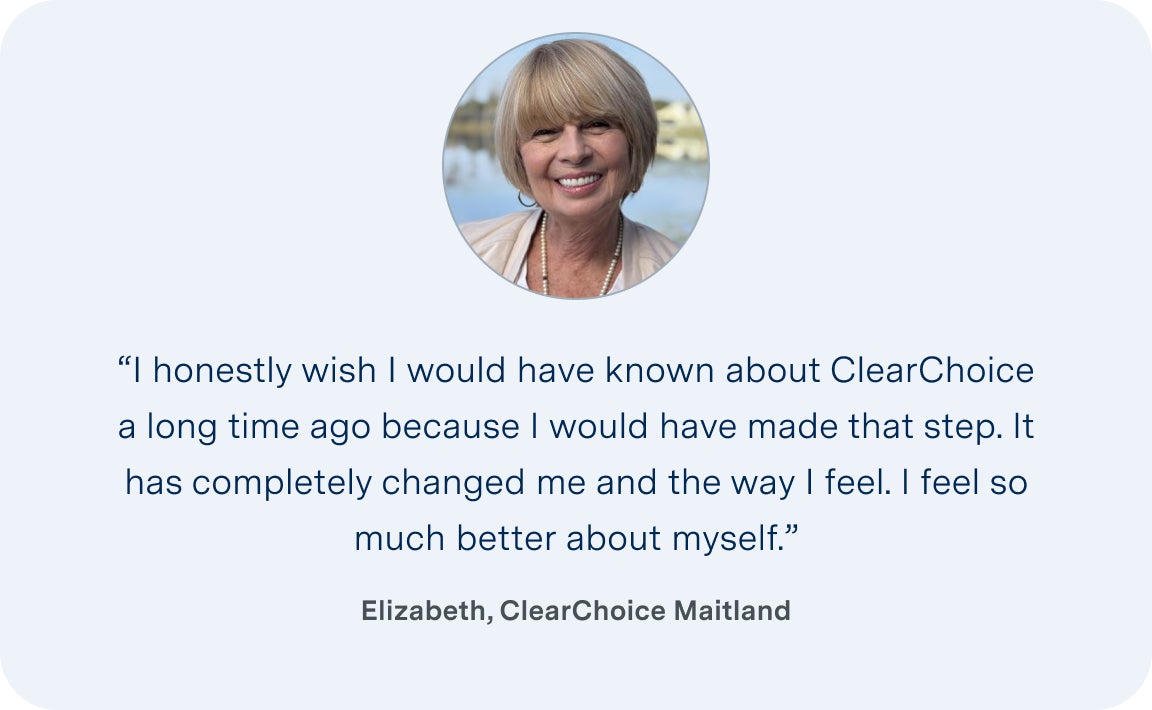
What’s the best tooth replacement option for seniors?
Implant-supported dentures are often preferred over removable dentures for comfort, bite function, and long-term satisfaction. But your ClearChoice team will guide you to the best solution for your needs.
Whether you’re just starting your research or already considering next steps, here’s how we can help you move forward with confidence.
Schedule a free consultation>
Am I too old for dental implants FAQs
Can a 70- or 80-year-old get dental implants?
Often, yes. Age alone doesn’t disqualify you. What matters is your overall health and your ability to safely undergo treatment.
Who might not be eligible for dental implants?
People with unmanaged medical conditions, severely compromised bone, or factors that limit healing may not be eligible — but every case is different, and options exist.
Are dental implants safe for seniors?
Yes. When placed by specialists and supported with a tailored treatment plan, implants are considered safe and reliable—even for older adults.

